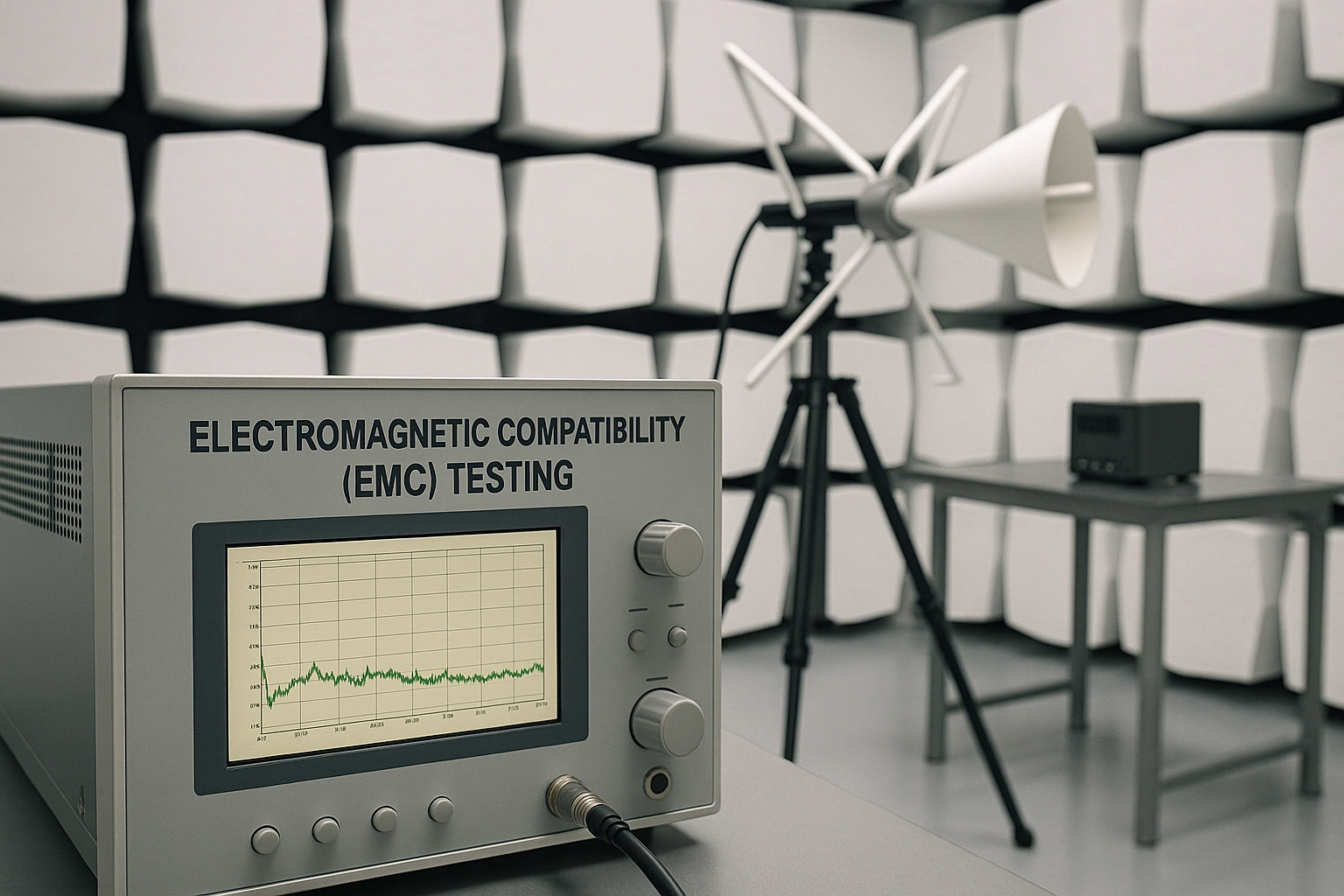ISO 28888 EMC Testing of Electric Vehicle Charging Interface
The ISO/IEC 28888 standard addresses the electromagnetic compatibility (EMC) testing requirements for electric vehicle charging interfaces, which is critical for ensuring robust and reliable performance in an increasingly complex electromagnetic environment. This service ensures compliance with international standards that are essential for the safety and interoperability of EV chargers.
The EMC testing process involves a series of stringent tests designed to evaluate how well the charging interface can operate without causing interference with other electronic devices, while also being immune to external electromagnetic disturbances. The standard covers various aspects including conducted emissions, radiated emissions, immunity to conducted and radiated disturbances, and transient phenomena.
Our testing facility uses state-of-the-art equipment capable of simulating real-world conditions that may affect the performance of EV charging interfaces. This includes an Anomalous Current Generator (ACG) for testing voltage transients, a high-frequency signal generator, and various measurement instruments to capture data on emissions and immunity levels.
For specimen preparation, we ensure that all components of the charging interface are assembled in accordance with the manufacturer’s specifications before undergoing testing. This includes checking for proper grounding, connection integrity, and ensuring the interface is clean and free from any foreign materials that might affect test results.
The primary apparatus used during this testing process includes an electromagnetic interference (EMI) chamber, which provides a controlled environment for conducting emissions tests. The chamber allows us to measure both conducted and radiated emissions by placing the charging interface inside it under various operational conditions. Additionally, we employ transient voltage surge suppressors (TVSS) to simulate real-world lightning strikes and other transient events that can affect the performance of EV charging interfaces.
Acceptance criteria for this test are stringent and based on ISO/IEC 28888 guidelines. Compliance is determined by comparing measured values against specified limits outlined in the standard. If any parameter exceeds these limits, corrective measures must be taken to ensure the interface meets all requirements before proceeding further.
Real-world usage notes indicate that compliance with this standard not only enhances safety but also improves user satisfaction by reducing issues related to electromagnetic interference (EMI). Moreover, adherence to such standards helps manufacturers meet regulatory requirements across different regions and fosters international cooperation in the development of electric vehicle technology.
In summary, our ISO/IEC 28888 EMC testing service for electric vehicle charging interfaces is designed to provide comprehensive evaluation ensuring high levels of electromagnetic compatibility. By leveraging advanced technologies and adhering strictly to industry standards, we deliver reliable results that contribute significantly towards the advancement of sustainable transportation solutions.
Applied Standards
The ISO/IEC 28888 standard is applicable in various sectors including automotive manufacturing, energy infrastructure, and consumer electronics. It specifically targets electric vehicle (EV) charging interfaces due to their role as critical components connecting EVs with power sources.
- Conducted emissions testing measures the amount of electromagnetic interference generated by the charging interface when connected to a power source.
- Radiated emissions testing evaluates whether the interface emits excessive radio frequency energy that could potentially interfere with other devices.
- Immunity tests assess how well the interface functions in the presence of external electromagnetic interference, ensuring reliable operation under adverse conditions.
The standard also covers transient phenomena which simulate real-world scenarios such as lightning strikes or switching surges. Compliance with these requirements helps manufacturers develop products that are robust enough to operate safely and efficiently even when exposed to challenging environments.
Industry Applications
- Automotive Manufacturing: Ensures that EV charging interfaces meet stringent EMC requirements set by global standards organizations, thereby enhancing product quality and reliability.
- Energy Infrastructure: Supports the implementation of smart grids capable of integrating large numbers of electric vehicles into existing power systems without causing disruptions or safety hazards.
- Consumer Electronics: Promotes interoperability between different brands of EV chargers, enabling consumers to choose among various options based on cost, functionality, and performance.
The ISO/IEC 28888 standard plays a pivotal role in fostering innovation within these industries by providing clear guidelines for designing and manufacturing compliant products. This contributes to the overall development of sustainable transportation systems that are both efficient and environmentally friendly.
Environmental and Sustainability Contributions
The ISO/IEC 28888 standard significantly contributes to environmental sustainability by promoting the use of electric vehicles which are cleaner alternatives to traditional gasoline-powered cars. By ensuring that EV charging interfaces meet rigorous EMC testing standards, we help reduce emissions from transportation sector, one of the largest contributors to global carbon footprints.
- Reduction in Greenhouse Gas Emissions: Encouraging widespread adoption of electric vehicles can lead to substantial reductions in greenhouse gas emissions compared to internal combustion engines.
- Improved Energy Efficiency: Properly designed and tested charging interfaces contribute to more efficient energy utilization, reducing waste and promoting sustainable practices throughout the lifecycle of EVs.
In addition to these direct environmental benefits, compliance with ISO/IEC 28888 also supports broader sustainability goals by fostering technological advancements that enhance overall quality control processes in manufacturing. This not only improves product performance but also reduces resource consumption and waste generation across supply chains.





